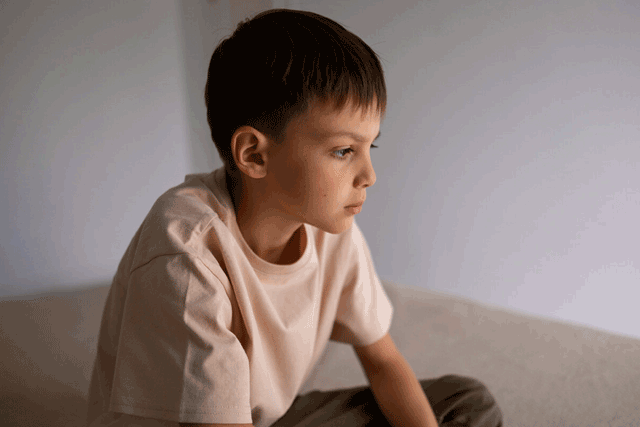You are here
To be positive or to be grateful?
By Nathalie Khalaf , Family Flavours - Nov 05,2023 - Last updated at Nov 05,2023

Photo courtesy of Family Flavours magazine
By Nathalie Khalaf
Holistic Counsellor
An emotional upheaval While growing up, my own definition of being positive meant to accept everything, no matter how hard orchallenging, with a smile and extra bubbly energy, if possible, without acknowledging what was really going on in my life.
As a child, a teenager and young adolescent, I had had no emotional education nor guidance on how to deal with my emotions. So, when my parents separated and each lived in a separate country, my internal emotional state was in upheaval most of the time, to say the least, until I could no longer handle it.
I decided to choose the “pleasant” emotions to help me exist and did my best on stifling the “difficult, heavy” emotions for as long as I could. Back then, what helped me cope was all the energy I had to go through school and deal with my social world.
Not a genuine thing
I stuck a huge smile on my face and set on a mission to please everyone around me; I ploughed through life as quickly as possible so that these unwanted emotions did not catch up with me.
The big smile plastered on my face was supported by a mountain of energy, all very active and fast moving forward. Families, societies and most of the world today find “being positive” fashionable. It has become “a thing” but not a “really genuine thing”.
What took me years to understand, through all the work I eventually did on myself when I got thrown into depression, was that the more we push ourselves in one direction as an abnormal activity (because we do not wish to deal with what we may be running away from), the more we attract the opposite, and the harder we may fall.
Emotionally disconnected
I had no control over all that anger, sadness, resentment, fear and rage I felt as a child and young teen with what was happening in my life. I did my best to run away from all my issues, but they eventually caught up with me and threw me into depression. I just don’t want you to think or believe anyone elsecan cause you to feel anything. Just know that you are ”doing the feeling” from inside.
When I could no longer run away from what hurt me the most, I got thrown into the dark side of my experience. If I could now look back and see that young girl with that huge incredible smile, so disconnected from her emotions, I would have held her and helped her go through it all; that smile was just a disguise and a coping mechanism.
I did not want to be connected to the pain inside me, nor did I want anyone to ask me how I was doing. I gave them the answer before they had the chance to ask.
“Look at that smile,” they would say and continue with: “She must be so happy, every thing must be going well and she is always so positive! An ideal child!”
I will not go into more detail about the pain here, but I wanted to make a point about how our society reveres “positivity” and applauds the “smiling-active-no-time-to-rest-attitude”, which eventually can lead us astray if out of balance.
I can be positive even when I am going through hardship. Positivity does not mean I have to display a smile which shows I’m disconnected from my emotions. Positivity is having the inner strength to clearly and truly “see” what I am going through and what is happening in my life and not be sucked into a mayhem of emotional chaos. Being positive is knowing I am always strong enough to go through all of my life experiences, even if I need to cry when I feel sad because my body needs to let out some energy and steam.
Mindful of the present
What I learnt about gratitude many years later was that being grateful for everything we have can provideus with a lot more inner strength to go through hardship as we become mindful of the present andour situation focusing on what we do have, instead of what is lacking. We allow ourselves to feel and experience all of our emotions.
It has been scientifically proven that feeling grateful stimulates two important regions in the brain: The hypothalamus, which regulates our stress levels, and the ventral teg mental area which is significant in our brain’s reward system, and produces feelings of pleasure.
Next time you find yourself going through a hard and painful time, do not push yourself to be positive andcreate internal emotional mayhem. Just go with the flow of your emotions and practice gratitude when you can.
I wish you well!
Reprinted with permission from Family Flavours magazine
Related Articles
I always wanted everyone to be happy. That desire later was also transferred onto friends and society. Children need the security of feeling loved, accepted and wanted and when they don’t feel that, they often take things personally.
By Nathalie KhalafHolistic Counsellor I’ve had many clients seek my help to change or control the emotional state they find themselves
By Dina HalasehEducational PsychologistIs your brain stressed?














